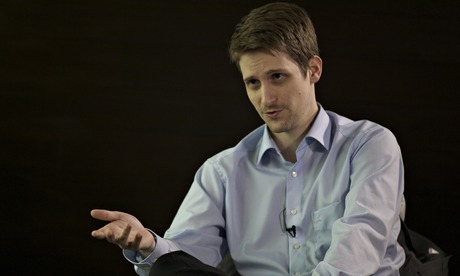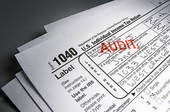 Edward Snowden, the former National Security Agency contractor who blew the whistle on the secret surveillance activities being carried out by the federal government, is warning accountants and other professionals to be concerned about the privacy of their communications.
Edward Snowden, the former National Security Agency contractor who blew the whistle on the secret surveillance activities being carried out by the federal government, is warning accountants and other professionals to be concerned about the privacy of their communications.In an interview with The Guardian, Snowden described how phone and email communications are vulnerable to tracking and what professionals need to do to protect themselves.
The NSA whistleblower, Edward Snowden, has urged lawyers, journalists, doctors, accountants, priests and others with a duty to protect confidentiality to upgrade security in the wake of the spy surveillance revelations.
Snowden said professionals were failing in their obligations to their clients, sources, patients and parishioners in what he described as a new and challenging world.
 "What last year's revelations showed us was irrefutable evidence that unencrypted communications on the internet are no longer safe. Any communications should be encrypted by default," he said.
"What last year's revelations showed us was irrefutable evidence that unencrypted communications on the internet are no longer safe. Any communications should be encrypted by default," he said.
Snowden's plea for the professions to tighten security came during an extensive and revealing interview with the Guardian in Moscow.
The former National Security Agency and CIA computer specialist, wanted by the US under the Espionage Act after leaking tens of thousands of top secret documents, has given only a handful of interviews since seeking temporary asylum in Russia a year ago.
"Legal professional privilege – the right to consult a legal adviser in confidence – is a long established common law right. Its fundamental role in our legal system needs to be reasserted." The society is pressing to have existing legislation rewritten to include explicit protection for legal professional privilege from government surveillance.
"There needs to be a debate about the implications of the Snowden revelations for professional privilege in the digital age," Hill said. "It is not happening. This is not being debated in parliament."
He said the society was seeking to strengthen law firms' cybersecurity awareness but that a stronger statutory framework was essential.
Michelle Stanistreet, the National Union of Journalists general secretary, echoed the concerns. "For democracy to function, it needs to have a free press and journalists who are able to do their job without fear or hindrance. But this is becoming increasingly under threat."
Read more at: Tax Times blog






